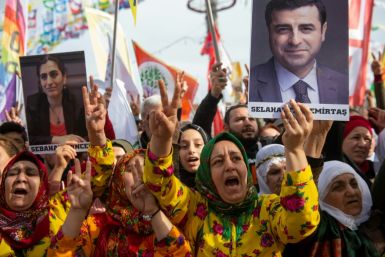40% of Kiwis Approve of Banning Fireworks; Police Warn of Fake Ecstasy Pill in Parties
In most countries, a fireworks display marks the celebration of New Year's Eve but 40 per cent of New Zealanders want fireworks banned. The Fire Service is happy with the attitude of Kiwis since many people use fireworks in a dangerous manner.
In a survey conducted by The Herald, 39.2 per cent of Kiwis want to ban the sale of fireworks while the rest are satisfied with the rules. According to the survey, only a small percentage of people want fireworks to be sold longer than four days a year.
The New Zealand government has restricted the sale of fireworks in 2007 in an effort to improve public safety. Only Kiwis at least 18 years old are allowed to buy fireworks. The sale period only lasts 4 days. Before the new regulation, the sale of fireworks would last for 10 days. Since the change was implemented, calls to the Fire Service dropped dramatically.
Fake party pills in New Year parties
Meanwhile, New Year revelers are warned of fake Ecstasy drugs rumoured to be in circulation. Authorities in New Zealand revealed the fake synthetic drug may contain a number of active ingredients but not the chemical compound that the original drug is known for.
New Zealand Drug Foundation executive director Ross Bell stated that drugs sold as Ecstasy may be composed of methamphetamine, caffeine and party pill BZP or also known as a mephedrone.
Police have observed an increase in Ecstasy movement since 2009. Reports said some users needed medical care due to unexpected effects in the body.
Other illegal synthetic drugs
Painkillers known in New Zealand as "hillbilly heroin" are on the rise among Kiwi teens. The combination of prescription drugs, cough syrup and mouthwash can create a potent entry-level drug, according to drug and alcohol counsellor Jeff Morse in Waikato.
Thousands of people in New Zealand have been given methadone treatment to keep them from using heavier drugs. Many patients were addicted to painkillers than illegal drugs like heroin.
Since 2007, the number of Kiwis being treated in methadone clinics rose to 19 per cent at almost 5000. According to experts, the increase may be attributed to more funding for synthetic drug courses. Authorities continue to monitor illegal drug movement in the country.






